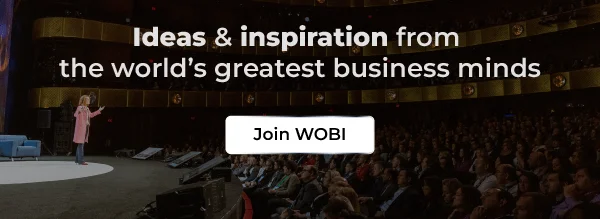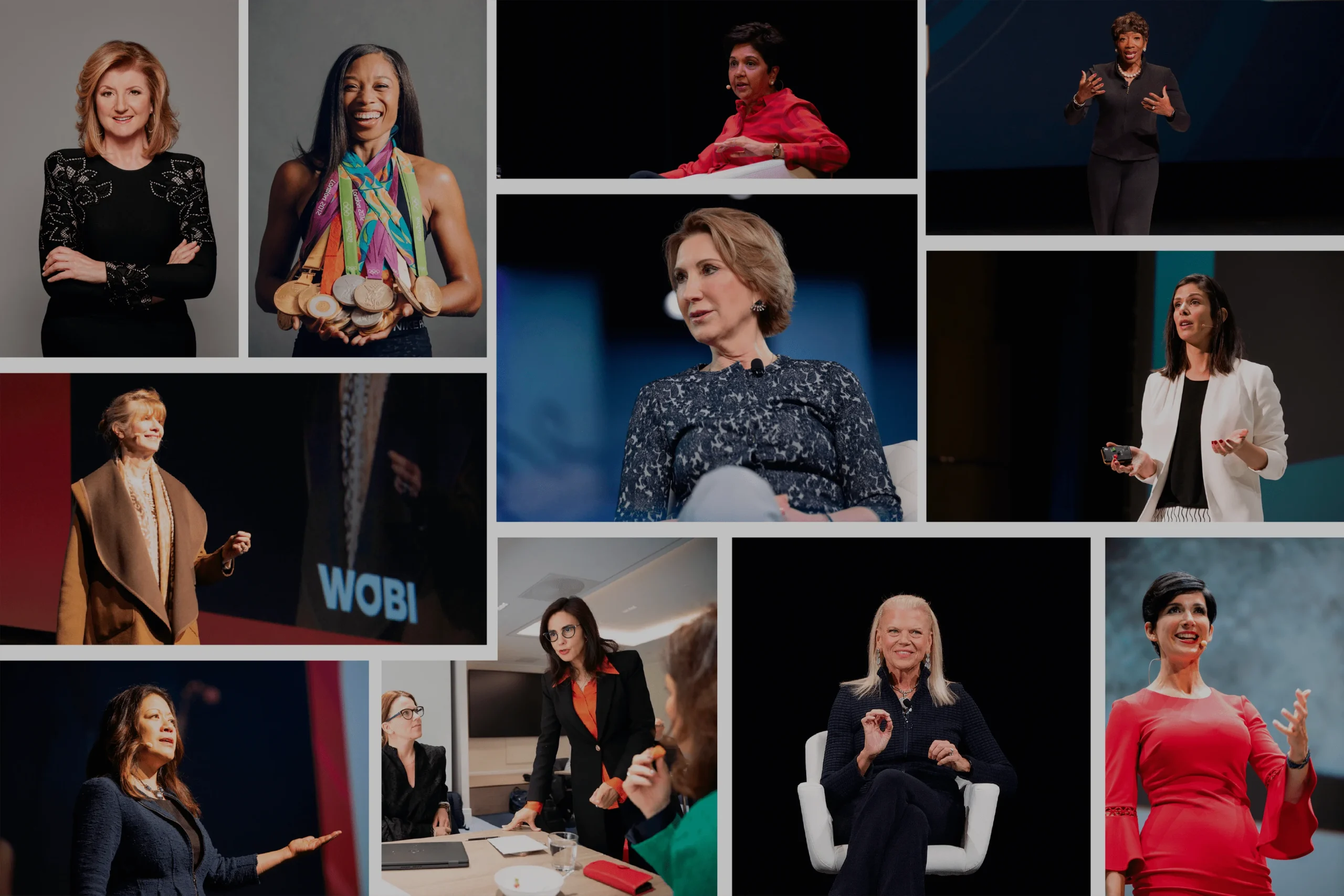
Inside WOBI
Leadership
Talent Has No Gender: Reflections on Leadership, Equity, and the Impact of Women in Business
Every year, International Women’s Day on March 8th serves as a powerful reminder of the progress we’ve made toward gender equity—and the work that still lies ahead. But this day isn’t just about celebrating women’s achievements; it’s about recognizing the transformative impact women have on businesses, teams, and leadership worldwide. It’s also a call to action for everyone—regardless of gender—to reflect on how we can create more inclusive, innovative, and equitable workplaces.
At WOBI, we’ve had the privilege of exploring these themes through the insights of some of the most influential women leaders of our time. These visionary experts have delved into the most pressing management topics—while also addressing critical issues that drive gender equity and create more inclusive workplaces. From breaking the glass ceiling to redefining work-life balance, their stories and strategies offer invaluable lessons for anyone looking to lead with purpose and impact. This International Women’s Day, we’d like to share some of the most powerful ideas from these leaders—ideas that not only inspire but also provide actionable steps for building a business world where talent truly has no gender.
The Value of Diversity and Authenticity in Leadership
When discussing leadership, two key concepts that may seem unconnected but when looked closely, emerge and spark together: diversity and authenticity. Both are essential for building strong teams and successful organizations. Carly Fiorina, the first female CEO of a Fortune 50 company, when discussing breaking the glass ceiling, emphasizes that diversity isn’t just about fairness or doing the right thing—it’s a smart business strategy. She points out that when everyone in a room thinks alike, groupthink takes over, stifling innovation and effective decision-making. Fiorina argues that a smart leader knows they need people around them who think differently because it’s through these differences that innovative solutions emerge.
But diversity alone isn’t enough. This is where authenticity comes into play. Carla Harris, one of the most powerful women in finance and Senior Client Advisor at Morgan Stanley, in her discussion on intentional leadership, highlights that authenticity is your distinct competitive advantage. As she emphasizes, “No one can be you better than you can”, and trying to be someone you’re not only puts you at a disadvantage. Harris explains that when you bring your authentic self into the workplace, people trust you, and trust is at the heart of any successful relationship. Moreover, when leaders are authentic, they inspire their teams to be authentic as well, creating a more collaborative and productive work environment.
The interplay between diversity and authenticity is clear: a diverse team needs authentic leaders who value and encourage differences. When leaders are authentic, they create a space where people feel safe to express their unique ideas, enriching the diversity of thought and fostering innovation.
Passion and Work-Life Balance
This emphasis on authenticity naturally leads us to another critical aspect of leadership: passion. When leaders and teams are authentic, they are more likely to be passionate about their work. Passion fuels creativity, resilience, and a sense of purpose, all of which are essential for long-term success. But passion alone isn’t sustainable without balance. This is where Allyson Felix, the most decorated American track and field athlete in Olympic history, offers invaluable insights. Felix shares her journey of balancing motherhood with a demanding career, acknowledging that while it’s challenging, it’s absolutely possible to excel in both areas. She stresses the importance of supporting women in the workplace, particularly through better maternity leave policies and creating a culture that allows mothers to return to work without feeling overwhelmed. Felix calls for a cultural shift that supports women both at home and in their professional lives. She emphasizes that creating real change requires courage, even when it feels daunting. She reminds us that “you can use your voice even if it shakes,” encouraging women to speak up against injustices and advocate for a more equitable world. True progress happens when we step outside our comfort zones and dare to push boundaries.
This focus on work-life balance connects seamlessly with Arianna Huffington’s six pillars for reducing stress and improving well-being. Huffington, founder of The Huffington Post and CEO of Thrive Global, emphasizes the importance of sleep, nutrition, movement, and community connection. She suggests that small steps, like taking 60-second resets during the day or opting for walking meetings, can have a profound impact on our mental and physical health. Huffington’s approach aligns with Felix’s call for a more supportive work environment, where individuals can thrive both personally and professionally.
Here’s another perspective on the topic: Although the percentage of women CEOs running Fortune 500 companies is still between 10 and 11%, Indra Nooyi, former CEO of PepsiCo, offers an optimistic view on women’s advancement in leadership roles. She believes that in the next decade, we will see significant progress, potentially reaching 20 to 25 percent, as women increasingly prioritize their careers alongside work-life balance.
By prioritizing well-being and creating supportive policies, organizations can help employees bring their authentic selves to work, which in turn enhances productivity and job satisfaction.
The Role of Trust in Hybrid Work Environments
Flexibility is another key aspect of work-life balance, and hybrid work models have played a crucial role in this. However, this must take place in an environment that doesn’t compromise team performance and where trust is essential. In today’s world, where hybrid work has become the norm, trust is more critical than ever. Rachel Botsman, leading expert on trust, explains that in hybrid environments, distributed trust is the social glue that holds teams together. Without the physical boundaries of an office, we must trust that our colleagues are working effectively, even if we can’t see them. Botsman notes that trust is a confident relationship with the unknown, and teams with high levels of trust are more tolerant of ambiguity and more innovative.
The Power of Framing and Collaboration
It isn’t that we just need more women leaders, but we need more leaders with traits traditionally associated with women.
As Ginni Rometty, former President and CEO of IBM, states, “It is this balance between empathy, listening, learning, but then at times of ambiguity, there are moments of clarity and direction.” These traits are not just “soft skills”; they are essential for building trust, driving innovation, and creating environments where everyone can thrive, fostering collaboration. In this sense, Zoe Chance, expert on persuasion and decision making and Professor at the Yale School of Management, introduces the concept of the “magic question”: What would it take? This simple yet powerful question shifts the dynamic from pressuring someone to do something to collaborative problem-solving. Chance explains that when you ask someone what it would take to achieve a goal, they often provide a roadmap that’s more achievable than you might expect. This approach not only builds trust but also encourages creativity and innovation.
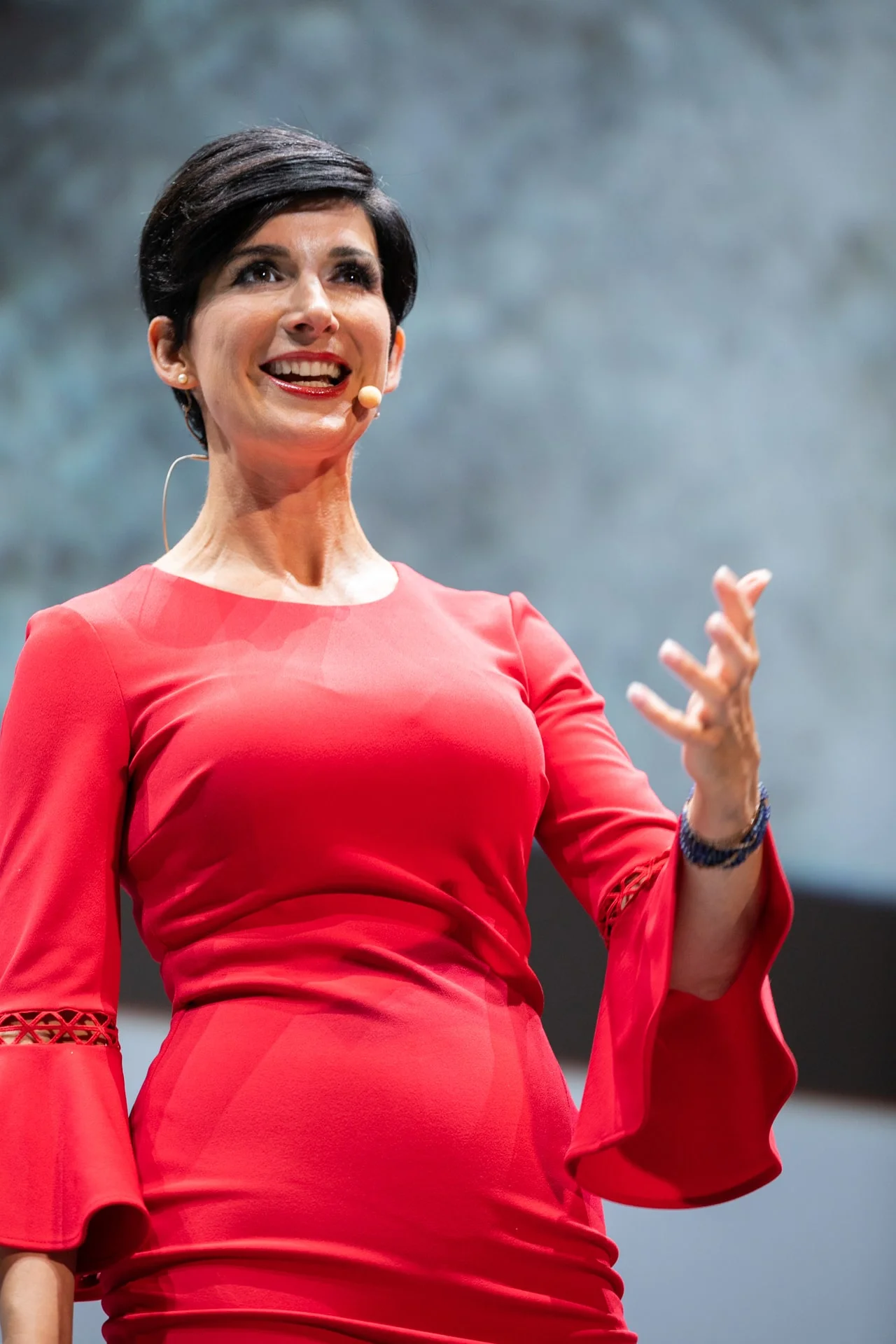
This idea of collaboration resonates with Hila Lifshitz’s insights on implementing AI in teams. Lifshitz, Professor at Warwick Business School and AI Innovation expert, emphasizes the importance of understanding how and when to use AI effectively. She suggests that leaders should encourage their teams to experiment with AI but also remain cautious about over-reliance on technology for productivity. Instead, the focus should be on using AI to enhance creativity and innovation, aligning with Zoe Chance’s emphasis on collaborative problem-solving.
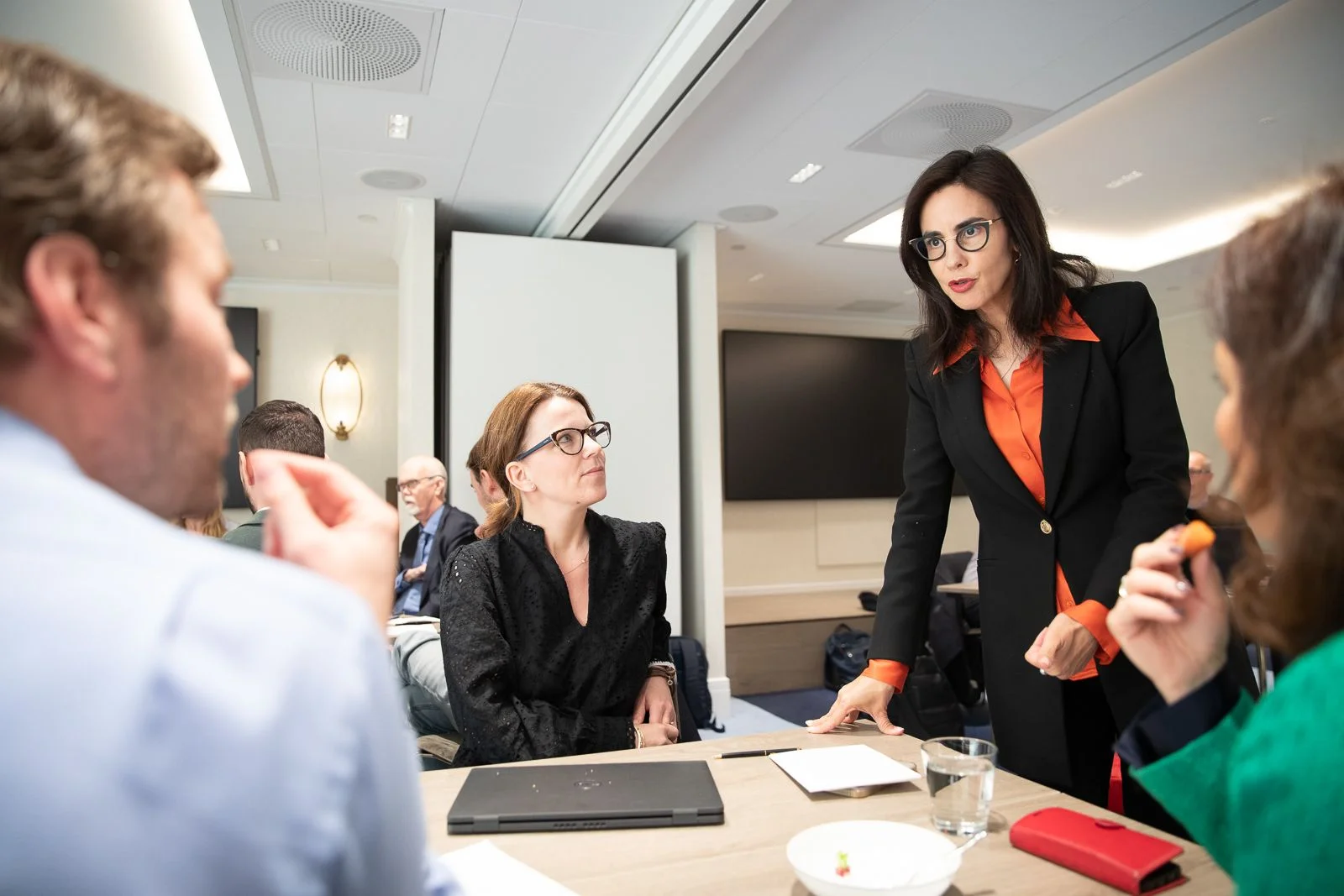
The Importance of Customer-Centric Leadership
Finally, leadership isn’t just about internal dynamics—it’s also about how organizations interact with their customers. Martha Rogers, leading expert in customer-centric strategy and bestselling author in her talk on improving the customer experience, outlines a four-step process: identify, differentiate, interact, and customize. She stresses that understanding your customers and tailoring your approach to their needs is key to building lasting relationships. Rogers’ approach aligns with the broader theme of authenticity, as it requires leaders to be genuine in their interactions and truly understand the people they serve.
This customer-centric approach is also reflected in Charlene Li’s discussion on business transformations. Li, leading expert on Digital Transformation and disruptive growth strategies, highlights that successful transformations—whether digital, cultural, or sustainability-focused—require a holistic approach. Leaders must align these initiatives with their organization’s purpose, values, and vision. By doing so, they create a cohesive strategy that not only drives business success but also builds trust and authenticity within the organization.
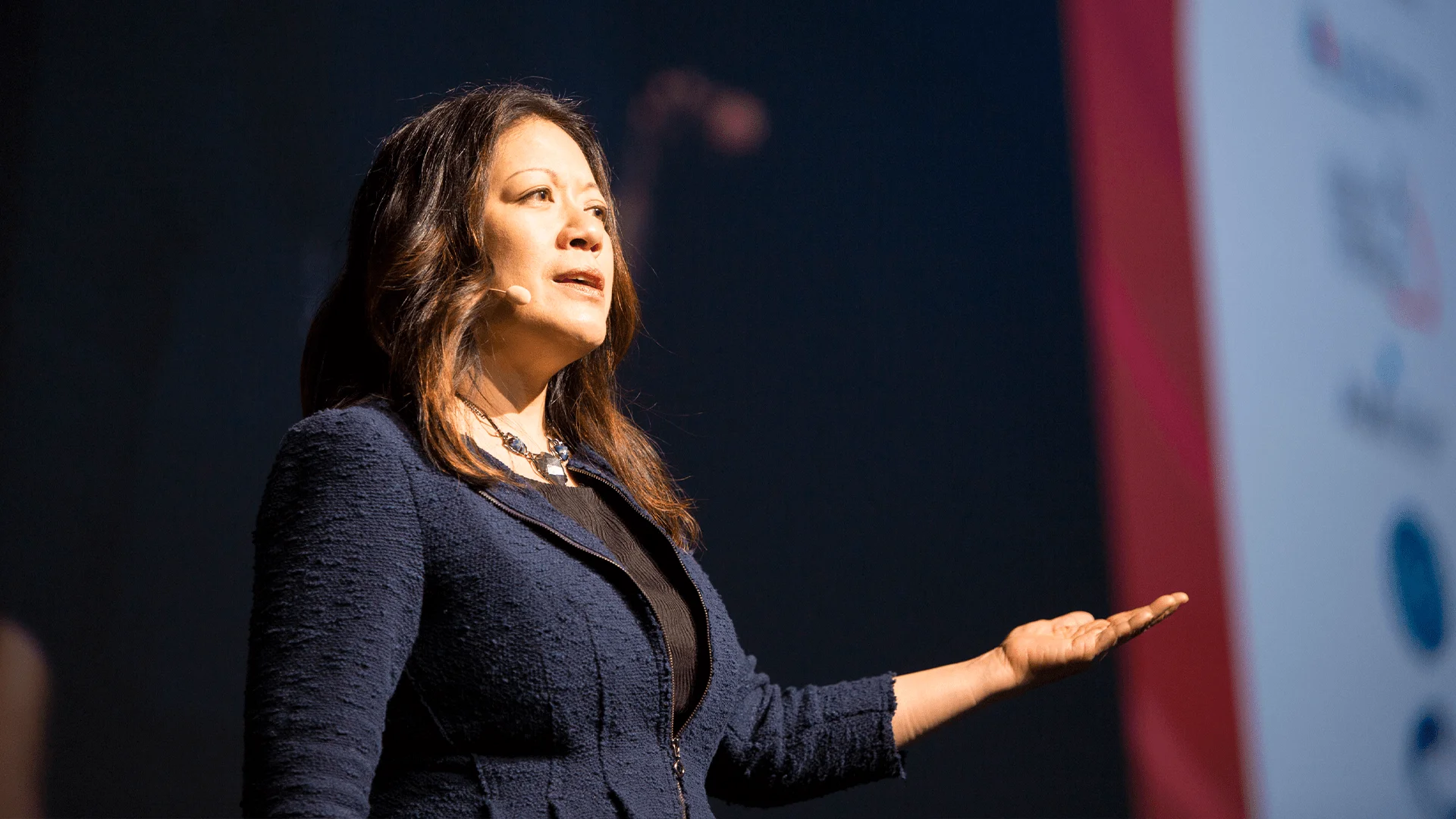
Conclusion: A Holistic Approach to Leadership
In summary, diversity, authenticity, work-life balance, trust, collaboration, and customer-centricity are interconnected concepts that, when addressed holistically, can transform how we lead and work. By integrating these ideas, leaders can create organizations that are not only more inclusive e innovative but also more resilient in the face of change. Whether it’s through supporting working mothers, fostering trust in hybrid environments, or using AI to enhance creativity, the key is to lead with authenticity and a commitment to continuous improvement.
On this International Women’s Day, let’s celebrate the progress we’ve made while recognizing the work that still lies ahead. Let’s accelerate action towards a more equitable business environment. Let’s embrace these principles and build a business world where talent truly has no gender. Let’s make it happen—together.

Renée Richardson Gosline
Customer Experience Strategy
Esperta di fama mondiale in esperienza del cliente e intelligenza artificiale presso MIT Sloan
A globally-recognized thinker on how AI affects human judgment, Renée Richardson Gosline is an award-winning Research Scientist and Senior Lecturer at the MIT Sloan School of Management, and the head of the Human-First AI group at MIT’s Initiative on The Digital Economy. Named a Digital Fellow at Stanford’s Digital Economy Lab, Gosline has also been recognized as one of the World’s Top 40 Professors under 40 by Poets and Quants, and as “one of the brightest minds in AI” by Inc. Magazine in 2024. Her research specializes in AI CX strategy, creating a culture of experimentation, and Responsible AI. She is the author of the forthcoming book, In Praise of Friction.
